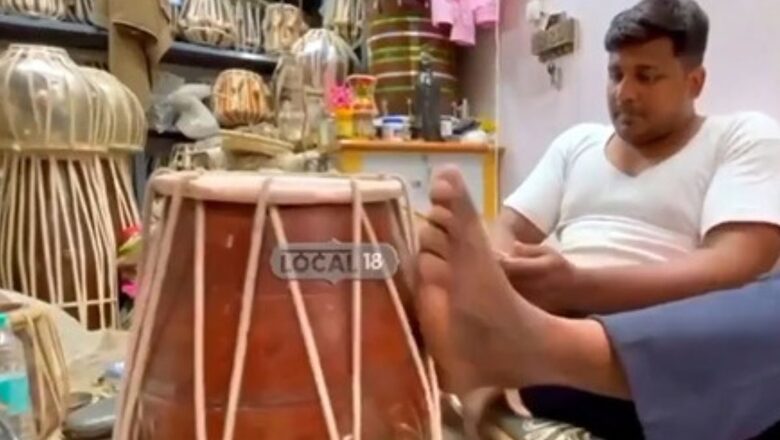
views
In the lively streets of Gowliguda in Hyderabad, you’ll find Mahbub Ali Tabla Maker, a seemingly modest shop with an extraordinary history. For more than 160 years, this establishment has been a hub for craftsmen in the realm of traditional music. Renowned nationwide, the shop specialises in crafting and restoring a variety of musical instruments.
The store was managed by Mohammad Shaukat and later by his son Shahbaz, who carried on the legacy set by his ancestors. The fact that the current father and son have upheld and prolonged this remarkable heritage is truly noteworthy.
Their expertise lies in the creation, restoration and distribution of musical devices such as Tabla, Dholak, Kongo, Bongo, and Mridangam. Without hyperbole, this establishment was founded by Mohammad Shaukat’s father over one hundred and fifty years ago, attracting individuals from both the southern and northern regions who travelled to Hyderabad in pursuit of these instruments. Essentially, it stands as an emblem of musical mastery. They continue to uphold time-honoured techniques and customs in the crafting of these instruments. For them, the craft of producing musical devices is not just a business, but rather a form of artistic expression.
Mohammad Shaukat and his son Shahbaz are captivating artisans who infuse each instrument they create with unwavering dedication and expertise. They utilise an array of materials like steel, brass, copper, and iron for crafting the tabla. In the case of wooden instruments, they meticulously choose materials such as red sheesham, rosewood and mango wood, tailoring each piece to meet the unique requirements of musicians.
The shop’s influence extends beyond national boundaries with orders pouring in from all corners of India. Even music enthusiasts in far-off places like Australia and Dubai order their instruments through cargo services. Despite tabla prices ranging from Rs 6,500 to Rs 25,000, they ensure the provision of top-notch quality tablas to their customers.
While the term “tabla” is commonly used to refer to a pair of drums, it doesn’t strictly adhere to the accurate definition. In reality, the smaller drum on the right side is the tabla, also known as the dayan, while the larger left-hand drum is called the dagga or bayan.
The process of crafting these drums begins with the creation of the drumhead, known as the “pudi,” which is a crucial step. This initial and intricate stage is consistent for both drums within the Tabla. To fashion the pudi, a carefully chosen piece of goatskin is utilized, with the thickness of the goatskin being of utmost importance.




















Comments
0 comment